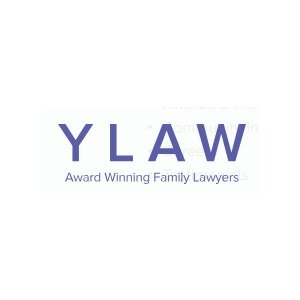Best Office Solutions Lawyers in Vancouver
Share your needs with us, get contacted by law firms.
Free. Takes 2 min.
List of the best lawyers in Vancouver, Canada
About Office Solutions Law in Vancouver, Canada
Office Solutions law encompasses various legal matters related to the operation, leasing, and management of office spaces in Vancouver, Canada. This area of law is essential for businesses seeking to establish efficient work environments, ensure compliance with local regulations, and manage any related disputes or transactions. Given Vancouver’s dynamic commercial landscape, businesses must navigate a complex interplay of real estate, construction, employment, and environmental regulations affecting office spaces.
Why You May Need a Lawyer
There are several situations where engaging a lawyer specializing in Office Solutions can be beneficial, including:
- Lease Agreements: Drafting, reviewing, and negotiating lease agreements for office spaces to ensure favorable terms and compliance with local laws.
- Dispute Resolution: Handling disputes with landlords or tenants, such as breaches of contract, maintenance issues, or lease terminations.
- Compliance: Ensuring that office setups meet local regulations on health, safety, and zoning to avoid legal penalties.
- Relocation Agreements: Guiding businesses through the legal processes of relocating office spaces within or outside Vancouver.
- Office Sharing: Advising on the legal implications of shared office spaces or co-working arrangements.
Local Laws Overview
Understanding the local laws that affect Office Solutions in Vancouver is crucial for businesses:
- Zoning and Land Use: Vancouver’s zoning bylaws dictate where office spaces can be located, impacting renovations and new build projects.
- Commercial Tenancy Act: This act governs the relationship between landlords and commercial tenants, outlining rights, responsibilities, and dispute resolution measures.
- Building Codes: Office spaces must comply with the British Columbia Building Code, which covers structural safety, accessibility, and energy efficiency standards.
- Environmental Regulations: Compliance with local environmental laws concerning waste management, emissions, and resource use is crucial for sustainable office operations.
Frequently Asked Questions
What legal considerations should I keep in mind when leasing an office space in Vancouver?
It is important to review the lease terms thoroughly, understand rights and obligations, ensure the space meets business needs, and confirm compliance with zoning laws.
Can I negotiate the terms of my office lease?
Yes, lease terms are generally negotiable. It's advisable to have a lawyer assist in negotiations to ensure that the terms are fair and legally sound.
What happens if my landlord is not complying with the lease agreement?
You may be able to resolve disputes through negotiation, but if this fails, legal avenues such as mediation or litigation are available, guided by the Commercial Tenancy Act.
Are there any particular laws concerning shared office spaces or co-working in Vancouver?
Shared office arrangements should have clear agreements outlining responsibilities, shared resources, and exit procedures, and these should comply with general commercial tenancy laws.
What should I consider if I'm relocating my office within Vancouver?
Consider lease termination clauses, moving costs, compliance with zoning and building codes at the new location, and updating any business licenses or permits.
How do I ensure compliance with health and safety regulations in my office space?
Ensure the office adheres to WorkSafeBC guidelines, fire safety regulations, and health codes, possibly requiring updates to facilities or procedures.
What is involved in drafting a legally sound office lease agreement?
A lawyer can help draft an agreement that includes essential elements like rent terms, maintenance obligations, occupancy rules, and termination conditions.
Can environmental regulations affect my office building in Vancouver?
Yes, compliance with environmental laws regarding waste, energy use, and emissions is necessary, impacting operational practices and potentially requiring environmental audits.
What should I do if there is a dispute with a tenant in my office building?
Explore dispute resolution options such as negotiation, mediation, or arbitration, and consider seeking legal advice to ensure rights are protected under the Commercial Tenancy Act.
How do building codes impact office renovations or construction in Vancouver?
Building codes dictate standards for safety, structural integrity, energetic efficiency, and accessibility, which must be adhered to during any office construction or renovation.
Additional Resources
Several resources can help with legal advice on Office Solutions in Vancouver:
- British Columbia Ministry of Municipal Affairs: Provides information on zoning and municipal bylaws.
- WorkSafeBC: Offers guidelines and information on workplace safety and health regulations.
- British Columbia Real Estate Association: Useful for understanding real estate laws and transactions in BC.
- Local Legal Clinics: May offer free or affordable legal advice regarding tenancy and office solutions.
Next Steps
If you need legal assistance in Office Solutions, consider the following steps:
- Consult a Specialized Lawyer: Reach out to a legal professional with experience in commercial real estate and office solutions.
- Gather Documentation: Compile all relevant documents, such as lease agreements, correspondence with landlords or tenants, and any regulatory notices.
- Research Local Laws: Familiarize yourself with the relevant municipal bylaws, the Commercial Tenancy Act, and any other applicable legislation.
- Explore Alternative Dispute Resolution: Consider mediation or arbitration before pursuing litigation, as they may offer more cost-effective and quicker resolutions.
Lawzana helps you find the best lawyers and law firms in Vancouver through a curated and pre-screened list of qualified legal professionals. Our platform offers rankings and detailed profiles of attorneys and law firms, allowing you to compare based on practice areas, including Office Solutions, experience, and client feedback.
Each profile includes a description of the firm's areas of practice, client reviews, team members and partners, year of establishment, spoken languages, office locations, contact information, social media presence, and any published articles or resources. Most firms on our platform speak English and are experienced in both local and international legal matters.
Get a quote from top-rated law firms in Vancouver, Canada — quickly, securely, and without unnecessary hassle.
Disclaimer:
The information provided on this page is for general informational purposes only and does not constitute legal advice. While we strive to ensure the accuracy and relevance of the content, legal information may change over time, and interpretations of the law can vary. You should always consult with a qualified legal professional for advice specific to your situation.
We disclaim all liability for actions taken or not taken based on the content of this page. If you believe any information is incorrect or outdated, please contact us, and we will review and update it where appropriate.











